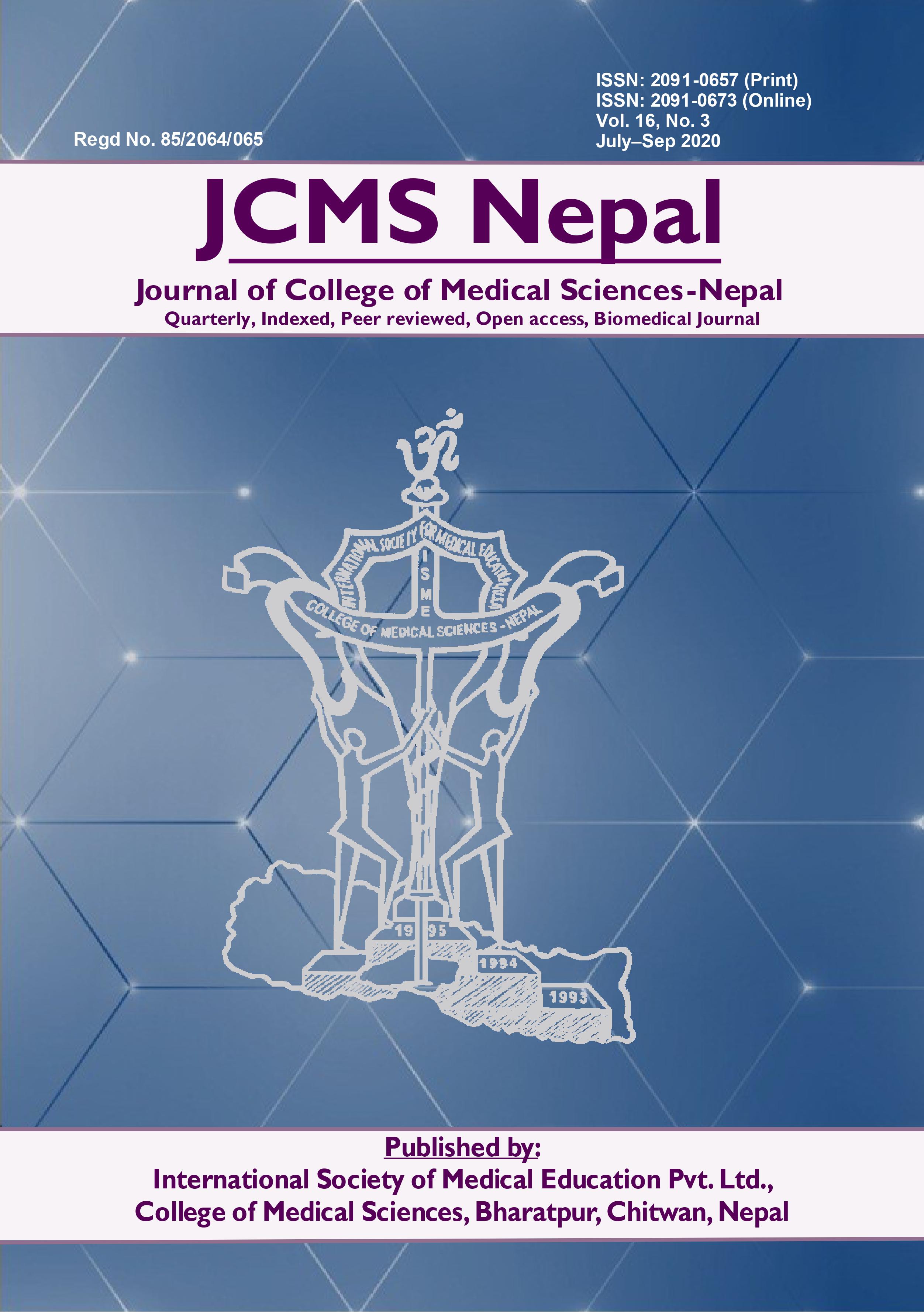Bacteriological Profile and Antibiogram of Endotracheal Aspirates in Patients Admitted in Neurosurgical Intensive Care Unit at a Tertiary Care Hospital
DOI:
https://doi.org/10.3126/jcmsn.v16i3.30662Keywords:
Tracheal aspirates, neurosurgical intensive care unit, polymicrobial, multi drug resistantAbstract
Background: The patients with head injury have reduced consciousness, they are prone to aspirations of oral secretions. The tracheotomized patients are colonized mostly by gram negative bacteria and are likely develop pneumonia causing life threatening consequences due to severe, persistent, resistant infections. This study was undertaken to identify the common organisms which cause respiratory tract infection and their Antibiogram of ventilated patients in Neurosurgical Intensive Care Unit.
Methods: A cross-sectional study was conducted to determine the prevalence and antibiotisc susceptibility analysis of Endotracheal aspirates of the patients who were admitted in Neurosurgical intensive care unit, College of medical sciences, teaching hospital, Bharatpur, for a period from October 2019 to July 2020. Aspirates were cultured onto Blood agar, McConkey and Chocolate agar. Isolation and identification was done using conventional techniques and Biochemical reactions. Antibiotic susceptibility was done by Kirby-Bauer disc diffusion method as per CLSI guidelines.
Results: Out of 163 samples, 147(90.18%) were culture positive. 78 samples were found to be polymicrobial. 16 samples showed no growth. Acinetobacter baumanii (36.05%) was the most common isolate followed by Enterobacter sp (25.85%), Klebsiella pneumoniae (15.65%), Pseudomonas aeruginosa (13.61%), Escherichia coli (5.44%), Citrobacter freundii (2.04%), and Staphylococcus aureus (1.36%). The gram negative bacilli were all sensitive to colistin. Comparatively, they were also sensitive to Imipenem, Meropenem, Cefaperozone/sulbactam. Staphylococcus aureus is sensitive to Vancomicin.
Conclusions: Respiratory tract infection in intubated patients is risk factors which lead to morbidity and mortality. Inappropriate and inadequate antibiotic treatment causes emergence of drug resistance in pathogens and poor prognosis in patients. The study reported the alarming condition of MDR in tracheal aspirates. Hence, surveillance for source of multi drug resistant bacteria would be beneficial for intervention of infection related to it.
Downloads
Downloads
Published
How to Cite
Issue
Section
License
This license enables reusers to copy and distribute the material in any medium or format in unadapted form only, for noncommercial purposes only, and only so long as attribution is given to the creator.




